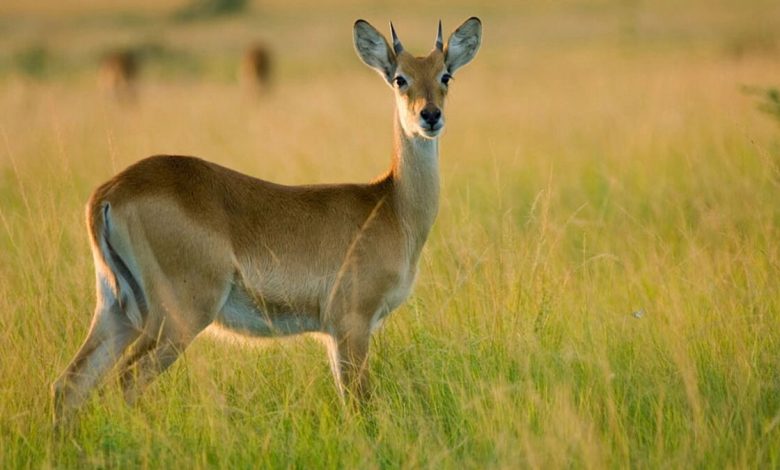WWF report highlights 76% decline in wildlife
But the WWF warns that without urgent action, many African ecosystems could reach critical tipping points that could threaten food and water security for millions across the continent.

Africa’s wildlife is facing an alarming decline, with populations plummeting by a staggering 76% over the past 50 years, according to the latest Living Planet Report 2024 by the World Wide Fund for Nature (WWF).
This steep decline surpasses the global average of 73% and is a dire warning of the challenges facing the continent’s rich biodiversity. The hardest-hit species are those in freshwater ecosystems, which have seen an 85% drop in populations, driven by habitat destruction, over-exploitation, and climate change.
While this paints a grim picture, there are signs of hope in some countries. Kenya, for instance, has seen stable populations of iconic species like the African lion and black rhino, a result of targeted conservation efforts.
But the WWF warns that without urgent action, many African ecosystems could reach critical tipping points that could threaten food and water security for millions across the continent.
Uganda’s Wildlife: A Balancing Act
Uganda, often referred to as the Pearl of Africa, is home to some of the continent’s most breathtaking wildlife. From the mountain gorillas of Bwindi to the elephants roaming Murchison Falls National Park, the country boasts a wide array of species. However, the trends outlined in the WWF report serve as a wake-up call.
Dr. Moses Nsubuga, a wildlife conservation expert in Uganda, underscores the importance of conservation now more than ever.
“Uganda’s ecosystems are incredibly diverse, but they are under increasing pressure from human activities, climate change, and land-use conflicts,” says Nsubuga. “Our national parks and protected areas may still be teeming with life, but outside these boundaries, wildlife is increasingly at risk. Deforestation, poaching, and wetland encroachment are critical issues that need immediate attention.”
One of the key findings of the report points to freshwater ecosystems being the most vulnerable. In Uganda, Lake Victoria and the River Nile support millions of people, but these water bodies are also at risk from pollution, overfishing, and habitat destruction.
The 85% decline in freshwater populations highlighted by the WWF serves as a stark reminder of the urgent need to protect these vital ecosystems.
Conservation Success Stories: Can Uganda Follow Kenya’s Example?
Kenya’s success in stabilizing populations of species like the African lion and black rhino offers valuable lessons for Uganda. Conservation initiatives, such as community-based wildlife management, habitat restoration, and anti-poaching efforts, have proven effective in countries like Kenya, and there is potential for Uganda to replicate such models.
“One of the biggest lessons we can learn from Kenya is the role of local communities in conservation,” says Dr. Jane Achan, a Ugandan environmental scientist. “When communities are empowered and see the benefits of protecting wildlife, such as through eco-tourism, it creates a sustainable model where wildlife and humans can coexist.”
Uganda has already taken significant steps in this direction. Programs like UWA’s (Uganda Wildlife Authority) community revenue-sharing initiative, where local communities receive a portion of tourism revenue from national parks, are helping to foster positive relationships between wildlife conservation and local livelihoods. But experts say more needs to be done to scale up such efforts.
The Road Ahead: Critical Ecosystem Tipping Points
The WWF report is a clarion call for urgent action. According to Kirsten Schuijt, WWF’s Director-General, the next five years are crucial for preventing irreversible ecological damage. The upcoming Biodiversity COP16 and Climate COP29 conferences are expected to play a pivotal role in shaping global conservation strategies, but for Uganda, local efforts are equally important.
“Uganda has a chance to be a leader in conservation in East Africa,” says Nsubuga. “But this will require investment in both conservation and education. Our young people must be taught the importance of biodiversity, and local governments need to prioritize environmental protection in their development agendas.”
He also stresses that climate change is an increasingly severe threat. As weather patterns become more unpredictable, both wildlife and human communities in Uganda will face growing challenges in accessing water and food. Tipping points—such as prolonged droughts or the collapse of vital ecosystems like wetlands—could have devastating impacts on both biodiversity and human well-being.
A Call to Action: Uganda’s Role in Protecting Africa’s Wildlife
Uganda’s rich biodiversity is a national treasure, but it is one that cannot be taken for granted. The Living Planet Report 2024 is a sobering reminder that without decisive action, the wildlife that so many Ugandans and tourists admire could disappear within a generation.
Dr. Nsubuga concludes with a powerful message: “We are at a crossroads. If we act now by strengthening conservation efforts, supporting sustainable land use, and involving local communities—we can reverse these declines. But if we continue on our current path, Uganda’s natural heritage could be lost forever.”
With critical international conferences on the horizon and growing awareness of the need for action, Uganda must now decide how to balance economic growth with the urgent need to preserve its wildlife. The future of Africa’s biodiversity, and Uganda’s role in it, depends on the choices made today.







